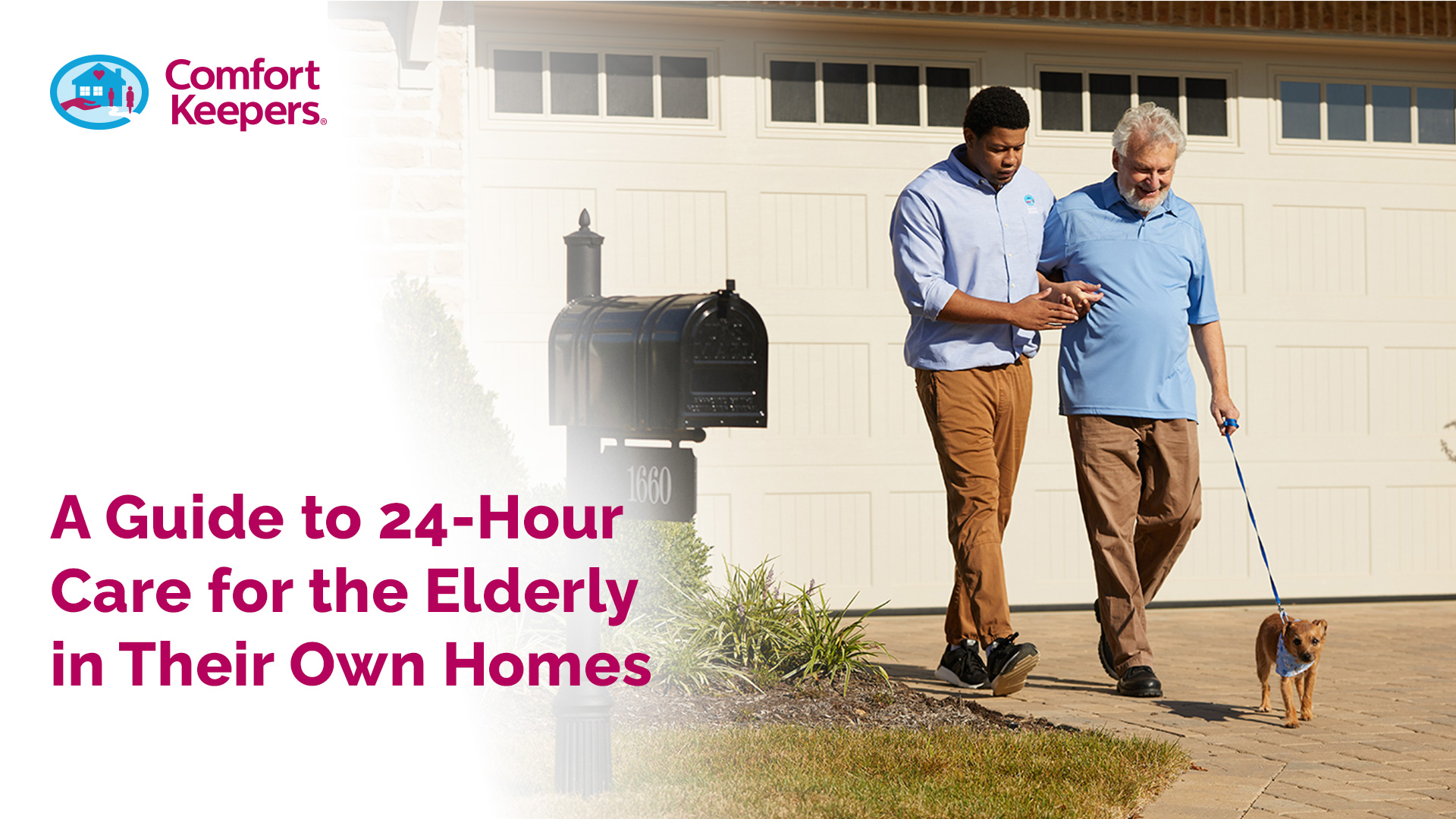
Many older people choose to spend their final years in their own homes because it allows them to keep some degree of independence. While some seniors are able to live independently at home, others require assistance with daily tasks like cooking, cleaning, and taking a shower. Some elderly people require in-home care to help with everyday tasks or to watch over their safety.
Having to make difficult emotional judgments while watching loved ones age is challenging. You may need to ask for assistance if you are a family member or the primary caregiver and you see a decline in a loved one's health. Aging at home is made feasible for seniors who aren’t interested in hospice care with two options: live-in care and 24-hour care. Learn the distinctions between the two and how your loved one can benefit from 24-hour care.
What Is 24-hour Care?
Families occasionally only want assistance for a few hours or days per week. However, as loved ones age, their in-home healthcare service requirements may rise. Not everyone providing care for an elderly dependent person is capable of doing it, much less doing so continuously. Elderly people receive practical assistance with daily duties from in-home care. With in-home care, trained caregivers go into a senior's home to assist families in caring for elderly people.
In order to cover both the daytime and overnight hours, 24-hour elderly home care services often assign two caregivers to 12-hour shifts. Three carers may alternate 8-hour shifts at a time in specific circumstances. The fact that there is always someone watching over the patient is one of its advantages. A caregiver is always awake and available to oversee the patient's care thanks to the 2-3 person rotation.
Additionally, long-term or temporary 24/7 home care may be beneficial. For instance, 24-hour post-surgical home care may be required for the recuperation of an older adult who has undergone surgery. Long-term care for elderly adults in their homes is very useful in other situations. Patients with dementia can need continuing, around-the-clock home care to provide essential services like daily prescription reminders.
Seniors with ongoing medical issues may benefit from around-the-clock care. Any older person who might require physical assistance during the night due to a chronic underlying ailment or recovery from surgery can rely on a 24-hour caretaker arrangement. A senior who is prone to wandering or attempting to leave the house alone might also fit this description. These seniors run the risk of wandering off and being lost, which puts them in danger. These kinds of situations can be avoided by having a caregiver on hand and awake to watch over the day and night hours.
Adjusting to 24-Hour Home Care
Even while 24-hour home care is an excellent option for seniors who want to age in place, it can be received with some skepticism, fear, and uncertainty. These are typical concerns among family members and seniors:
How will I inform Mom or Dad that they now require 24-hour care?
How can I ensure that my loved one's dignity is preserved?
What precisely does this service entail?
What changes do I need to make to ensure the caregiver is likewise at ease?
What if the caregiver isn't a "good fit" for my family member?
Educating yourself is the best way to reduce resistance and ambiguity about 24-hour home care. As a result, we've devised a few strategies for effectively preparing for and adjusting to 24-hour home care services.
First, you should establish that the caregiver is merely there to assist you. Having an apparent knowledge of what the home care provider will or will not do before they even begin offers a sense of relaxation almost instantly. Home health care providers can help with medication reminders, medical procedures, housekeeping, and food preparation. It is sometimes as essential as companionship.
However, regardless of their responsibilities, knowing ahead of time allows expectations to be set.
Which is the Best Care Option for Your Loved One?
Do you think that 24-hour care for the elderly in their homes would be beneficial for your loved one? Seniors can age in the comfort of their homes and keep their independence very successfully with in-home care. Reliable resources can assist you in choosing the best in-home care choice if you feel that an older adult in your life requires this type of care.
You can learn more about live-in and 24-hour choices by meeting with an in-home care advisor. These experts may also evaluate your loved one's requirements and collaborate with you to choose the kind of care that is most appropriate for their needs.
24-hour care offers a variety of caregivers who work in shifts to provide round-the-clock care. On the other hand, live-in senior care places one caregiver who really resides in the patient's home for daily help.
Your loved one will have easy access to a caregiver who is awake and aware at any time of the day with 24-hour in-home care. However, with live-in care, your loved one will only receive attention when the caregiver is awake.
Our ability to meet the special requirements and circumstances of our clients and their families is made possible by our tailored care programs. Whether you or a loved one desire the security of having someone else in the house at all times or are seeking to achieve goals that improve quality of life, we collaborate with a client's whole care team to build the plan.
We work to improve the human spirit by providing high-quality, caring medical treatment. Contact us to arrange a meeting with one of our care coordinators if you or a loved one could benefit from 24-hour help. We'll provide you with more details about home health care in Citrus Heights, CA, and collaborate with you to create a plan that satisfies all of your requirements for all hours of the day or night.









